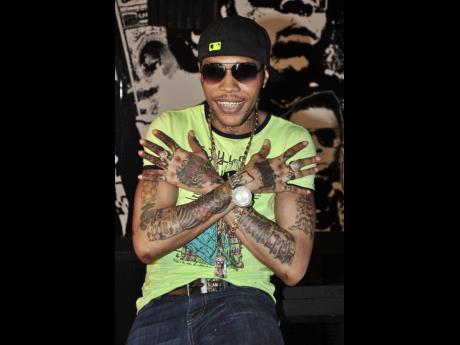Facts of Kartel’s appeal outlined by Privy Council
Hearing begins Wednesday in the UK
Valentine’s Day marks the beginning of a two-day hearing by the Privy Council in the United Kingdom for convicts Adidja ‘Vybz Kartel’ Palmer, Shawn ‘Shawn Storm’ Campbell, Kahira Jones , and Andre St John.
Their case will be heard by Lord Reed, Lord Lloyd-Jones, Lord Briggs, Lord Burrows, and Lady Simler of the Judicial Committee of the Privy Council. A nine-member team, comprising Bert Samuels, Bianca Samuels, John Clarke, Linda Hudson, Isat Buchanan, and four other overseas-based attorneys will face the committee.
The facts of the case, as outlined on the Privy Council’s website, are as follows: Facts
After a trial lasting 64 days before the trial judge and a jury in the Home Circuit Court in Kingston, Jamaica, the appellants were convicted of Mr Williams’ murder. The prosecution’s case was that the appellants murdered Mr Williams on 16 August 2011 after he failed to return two unlicensed firearms which the second appellant, Mr Palmer, had given him for safekeeping. Mr Williams was not seen or heard from after that date, and his body has never been found.
The police took the appellants into custody on 30 September 2011 and seized their cellular telephones. The prosecution relied heavily on evidence derived from these phones, which was taken from a copy of a CD rom provided by Digicel (a telecommunications provider in Jamaica) in response to a police request. At the trial, the appellants challenged the admissibility of this telecommunications evidence. They argued that the police request to Digicel and Digicel’s provision of data to the police were carried out in breach of the Interception of Communications Act. Further, the evidence had been obtained in breach of the fundamental right to the protection of privacy of communication guaranteed by the Charter of Fundamental Rights and Freedoms contained in the Jamaican Constitution. However, the trial judge ruled that the telecommunications evidence was admissible.
During the trial, the judge became aware of an allegation that a juror had attempted to bribe others by offering $500,000 JMD for a particular outcome. After investigating the allegation and considering it with counsel for both the prosecution and the defence, the judge decided that the trial should proceed. He did not discharge the jury or the particular juror said to have offered the bribes. The judge finished his summing up at 3.42 p.m. on 13 March 2014. The jury returned at 5.35 p.m., when the forewoman told the court that the jury had not reached a unanimous verdict. The judge sent the jury out again. At 6.08 p.m., the jury returned, and by a majority of 10 to 1, convicted the appellants of the murder of Mr Williams.
The Court of Appeal dismissed the appellants’ appeal against conviction. The appellants now appeal to His Majesty in Council.

